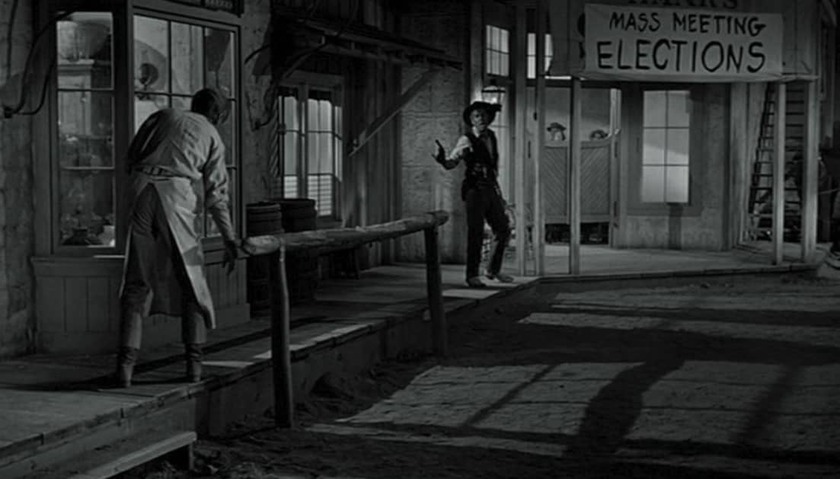As Andrew Klavan recently said about himself, "I am not a scholar but a storyteller," which informs how I see the world. Most people, I think, perceive the world and history through a storyteller’s lens. Our most enduring tales are simple ones about good and evil, with just enough information to give us a sense of what may have happened. Any writer will tell you, too much detail bogs down the narrative and is distracting.
Keep it simple, stupid. Less is more.
In the United States we are particularly dependent on stories. As a country we have no national, biological heritage. We depend on a creed, and the only way to adopt and understand something so abstract is through illustrative narratives. When we lose the plot, we don’t just lose our identity, we lose our nation. The way we use story goes beyond our own borders and shapes how we understand world and historical events as well, and much of it has been adopted by other cultures as Hollywood films used to be our greatest export.
But a new generation of incompetent storytellers have taken over.
Two recent news items have really driven this to prominence. First in fiction, the second in fact. The discussion about Disney Star Wars’ The Acolyte has been inescapable. While I’m no fan of Star Wars, it’s undeniably the greatest science fiction franchise in history. George Lucas launched a whole universe where the good guys and bad guys were obvious. The name and title Darth Vader, Sith Lord, just oozes evil. Luke Skywalker, on the other hand, is a name that screams freedom and righteousness. When Lucas was in charge of Star Wars the Jedi were the good guys. In an interview with Bill Moyers around the release The Phantom Menace he described them as like “ultimate father figures or negotiators.”
Now Star Wars is run by women who hate their fathers.
The showrunner for The Acolyte, Leslye Headland, told Collider, “I think it’s difficult to do a show that is critical in any way of the Jedi.” Uh oh. She went on, “Like, I think that… people were very nervous about saying this particular institution may not be the light and perfect, stunning group of heroes that are totally nobly intentioned.” It’s worth noting that The Acolyte is set long before George Lucas’s stories, but by setting in the past Headland wants to cast a new, negative, light on everything fans thought they knew, and everything George said that the Jedi are supposed to be.
Maybe the Jedi aren’t the good guys and never were.
Star Wars was a generation defining story of clearcut good and evil, and the recent effort to demythologize it is unfortunate. When our fictional heroes cease to be heroic we have nothing to aspire to. But it is fiction. More concerning is Tucker Carlson and Darryl Cooper’s skewed take on one of Star Wars’ chief influences, that is, the historical battle of good and evil that was World War II, and on Winston Churchill, one its greatest heroes. Before Star Wars, the story of the second World War was our metric for good and evil, and in some ways it still is.
“Hitler” has become our replacement word for “Satan.”
Yet Cooper says the Germans were just unprepared for the conflict they started and that gas chambers were an unintended consequence. Uh, no. Genocide was their plan all along, and it’s well documented. Cooper also claims in the interview that Churchill was the “chief villain” of the war, suggesting that war financiers and the media wanted him in power, and that Zionists paid him for his work. It sounds to me like it’s Cooper who is playing to the media and looking for financial gain more than the cantankerous Churchill ever did.
Churchill, it might be noted, was also a real historian.
Yet here we are, watching as two important stories that have shaped our concepts of good and evil are being systematically disassembled. It’s not just Confederate statues being pulled down, but the memories of great leaders. Is there more nuance in real life than the stories tell? Yes. Again, the good stories are simple and streamlined. Are the bad guys really Satan incarnate, or the good guys more perfect than angels? No. But at the same time, we lose something when try to add too much information, when we tear apart the legends that have given us inspiration for so many years. What does it benefit the average man to see inspiring figures and groups “warts and all”?
I leave that to the scholars. But I do believe there is room for discernment and sometimes turning a blind eye.
At this point, one must consider the lesson The Man Who Shot Liberty Valance.
“This is the west, sir. When the legend becomes fact, print the legend.”

























